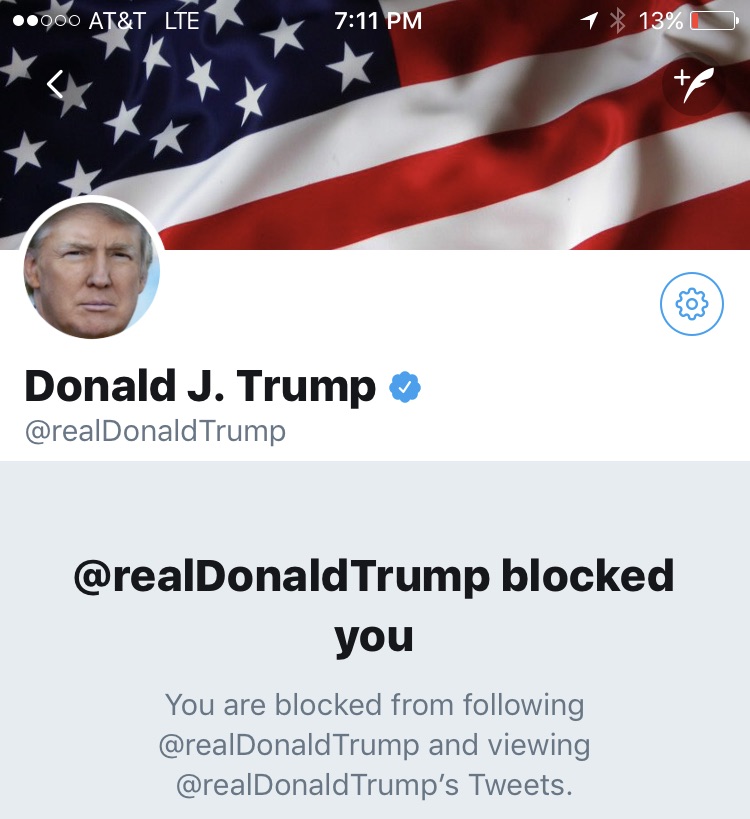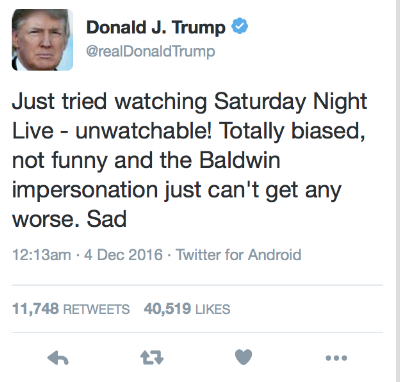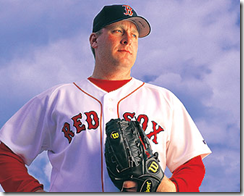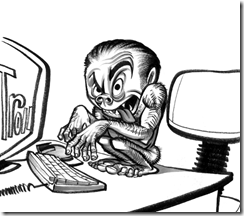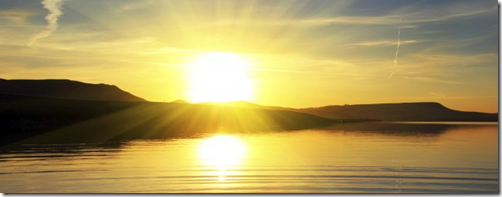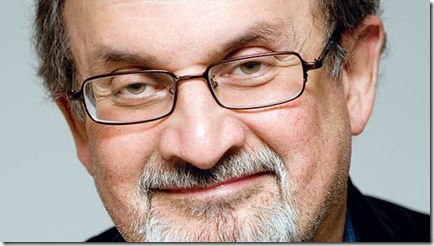Donald Trump lost last night, and I won.
/On July 11 of 2017, I was walking with half a dozen teenage girls across the quad at Miss Porter's School toward the dining hall. They were my camp counselors - Miss Porters' students who were helping me teach about 25 other girls from around the world about writing, speaking, and storytelling. We were heading to the dining hall in the waning sun of the late afternoon when I looked down at my phone and saw that Donald Trump had blocked me on Twitter.
I had sent a tweet at Donald Trump earlier that day that read:
Proposal: If you take healthcare away from 23 million Americans, you must also give up your healthcare until those Americans have coverage.
Less than a minute later, Trump tweeted and then blocked me. I was probably near the top of his feed at that moment. My tweet had received hundreds of likes and replies and had already been retweeted 30 times. I also have a verified Twitter account (the blue check mark), indicating that I am a personality of sorts and an actual human being, making my presence weightier on the platform.
I was so angry, "Damn it," I said. I couldn't believe that the President of the United States had stopped me from receiving what he had already said was "official statements:" from the White House. My pipeline to power had been cut off, and I was enraged.
One of the girls asked what was wrong, and I explained. Then they spontaneously burst into cheers and laughter, dancing around me, grabbing my hands and twisting me like a maypole. "I'm so proud of you," one of them shouted. "This is amazing," another one said. "You poked the beast!"
They turned that moment around for me pretty quickly.
In the spring of this year, I joined The Knight Foundation's lawsuit against Donald Trump in an attempt to force him to remove his block on my account. I joined 41 Twitter users, including several journalists and writer (who I adore) Bess Kalb, in this attempt after the Knight Foundation had already won their first case on behalf of seven other plaintiffs in May of this year.
Last night, on the eve before I begin my 20th year of teaching, I was finally unblocked by the President of the United States.
We won.
I immediately sent this tweet:
It's not much. I can read Donald Trump's tweets with ease and respond to him directly as I wish. Will he ever see my response?
Maybe. He's seen it before.
But it's not much. It won't help the families who have been separated at the border or the middle class families who are being fleeced by the Republican tax bill. It won't save the environment that is being plundered and destroyed by Republican deregulation. It won't restore America's standing on the world stage. it won't honor the legacy of John McCain or restore the rights of my LGBTQ friends.
It won't keep white nationalists and Nazis off our streets, and it won't bring Heather Heyer back to life.
But it's something. I agreed to stand up, make my name known, and stand in defiance to this ignorant, racist, self-dealing Presidency, and for a moment, Donald Trump was forced to capitulate. Stand down. Back off.
It felt good to know that a man who seeks authoritarian power and routinely ignores the rule of law was forced to do something he had previously refused to do. I played an infinitesimally small part in the course of his Presidency. For a moment, I made him do something he didn't want to do. I made him follow the rule of law.
I annoyed him.
It's not nearly enough. But add it to the marches that Elysha and I attend with our children, our donations to organizations like the ACLU, our support of political candidates who stand against this administration, our phone calls and letters, and most importantly, our votes, and maybe it's something.
Not enough on our own, but with enough of our fellow Americans standing alongside us, perhaps more than enough.
It also felt good, and that's important, too. In this age of Trump, it's hard to feel hopeless, helpless, and useless. It's easy to hear about the latest atrocity committed by the President and feel like our country is spiraling into an abyss. It's so easy to just give up.
Self care is important. Finding ways of doing good and feeling good are essential. This was one of those ways.
I was a participant in a lawsuit against the President of the United States, and we won.
I can't imagine a better start to my school year.


